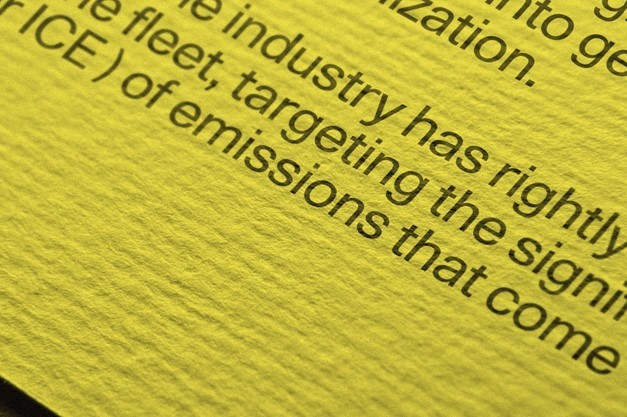
A “Pathway Report” initiated by EV companies Polestar and Rivian shows the automotive industry could overshoot the Intergovernmental Panel on Climate Change (IPCC) 1.5 degree global temperature increase limit target by more than 75% by 2050 without urgent action.
Electrification alone is not enough, according to the report by global management consulting firm Kearney, which recommends a three-lever approach to set industry on the right path and calls for new forms of collaboration to build rapid momentum.
Collective action is needed to reduce greenhouse gas (GHG) emissions in supply chains and increase renewable energy in the grids, in addition to faster EV adoption, it adds.
Passenger vehicles currently account for 15% of all GHG emissions globally.
The IPCC has stated that all GHG emissions need to be reduced by 43% by 2030 and the report says the automotive industry is way off and will have spent its full CO2e budget by 2035 without urgent action.
In spite of the gloomy outlook, the report suggests the car industry still has a chance to get on track. By redirecting resources and focus, the industry can rapidly build the momentum required to remain in line with the Paris Agreement, it adds.
The Pathway Report focuses on the current decade and outlines immediate, clear actions that car manufacturers can take between now and 2030, including some that can be triggered immediately.
Lever one looks at the speed at which fossil fuel-powered cars need to be replaced by electric cars but points out that this alone will not be enough with much more work required for levers two and three.
These include increasing renewable energy in power grids and reducing GHG emissions in the manufacturing supply chain.
Collective action from automakers is needed on all three levers, in parallel, at a global level, the report explains.
Firstly, the industry must accelerate the transition to EVs by investing in manufacturing capabilities, as well as implementing a firm end date for fossil fuel car sales globally.
Secondly, build out renewable energy supply to global grids that enable EVs to reach their full potential through green charging.
Thirdly, decarbonise the manufacturing supply chains for these vehicles through switching to low carbon materials, and investing in renewable energy solutions for supply chains.
“Car companies may be on different paths when it comes to brand, design, and business strategies, and some won’t even admit that the road to the future is electric,” says Polestar sustainability head Fredrika Klarén.
“I believe it is, and that the climate crisis is a shared responsibility, and we must look beyond tailpipe emissions.
“This report makes clear the importance of acting now and together. There’s a clear cost to inaction, but there’s also a financial opportunity for innovators who find new answers to the challenges we face.”
Kearney’s report has been shared with several of the world’s leading car makers, together with an invitation to a roundtable held at the end of January to discuss areas of collective action. The aim is to find a path towards unprecedented, relevant and collective climate action for the car industry.
“Our hope is that this report lays the groundwork for the automotive industry to collaborate in driving progress at the pace and scale we need – and ideally inspiring other industries to do the same,” says Rivian chief sustainability officer Anisa Costa.
The investment community is moving and capital flows are shifting from traditional investment to sustainable investment.
“The result of our modelling clearly shows that the industry needs to accelerate the pace of becoming a low carbon industry,” says Kearney global sustainability director Angela Hultberg.
“We looked at different scenarios, different data points, and the conclusion is that no matter how you model it we are far too close for comfort.
“We sincerely hope this report will be a starting point for the industry to focus on areas where there is agreement and find specific initiatives.
“It will take collective action to solve some of the issues at hand, and we look forward to seeing what the manufacturers will do in the near future.”
More talks are planned over coming months.
“This trajectory should be a stark warning to the car industry, especially to those manufacturers popular here at home where we remain a dumping ground for their polluting petrol and diesel cars,” says Climate Council senior researcher Dr Carl Tidemann.
“Cars and light commercial vehicles alone make up over 60% of Australia’s transport pollution. This is largely due to our petrol-guzzling cars which produce up to 40% more carbon dioxide than their European counterparts.
“Urgently reducing emissions from the beginning to end of vehicle production and beyond by electrifying their fleets and switching to renewables across the entire supply chain is essential to avoid the worst impacts of harmful climate change. The global car industry needs to pull their weight in our shared efforts to rapidly cut emissions.
“Transforming how we get around is also critical, because electrifying cars will not entirely cut transport emissions. Far too many Australians are reliant on cars because our public and active transport infrastructure isn’t up to scratch.
“Investment in clean public and active transport options to give Australians more reliable and affordable travel options must be part of the solution.”
Contact pathway@kearney.com for more information and click here for the full report.








